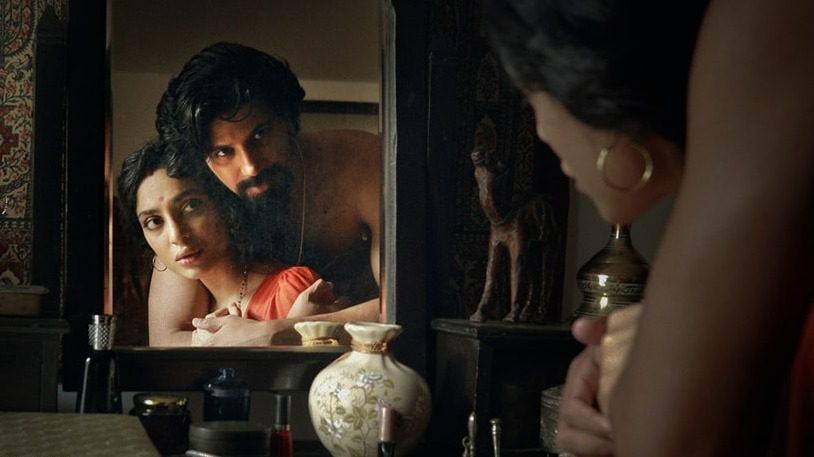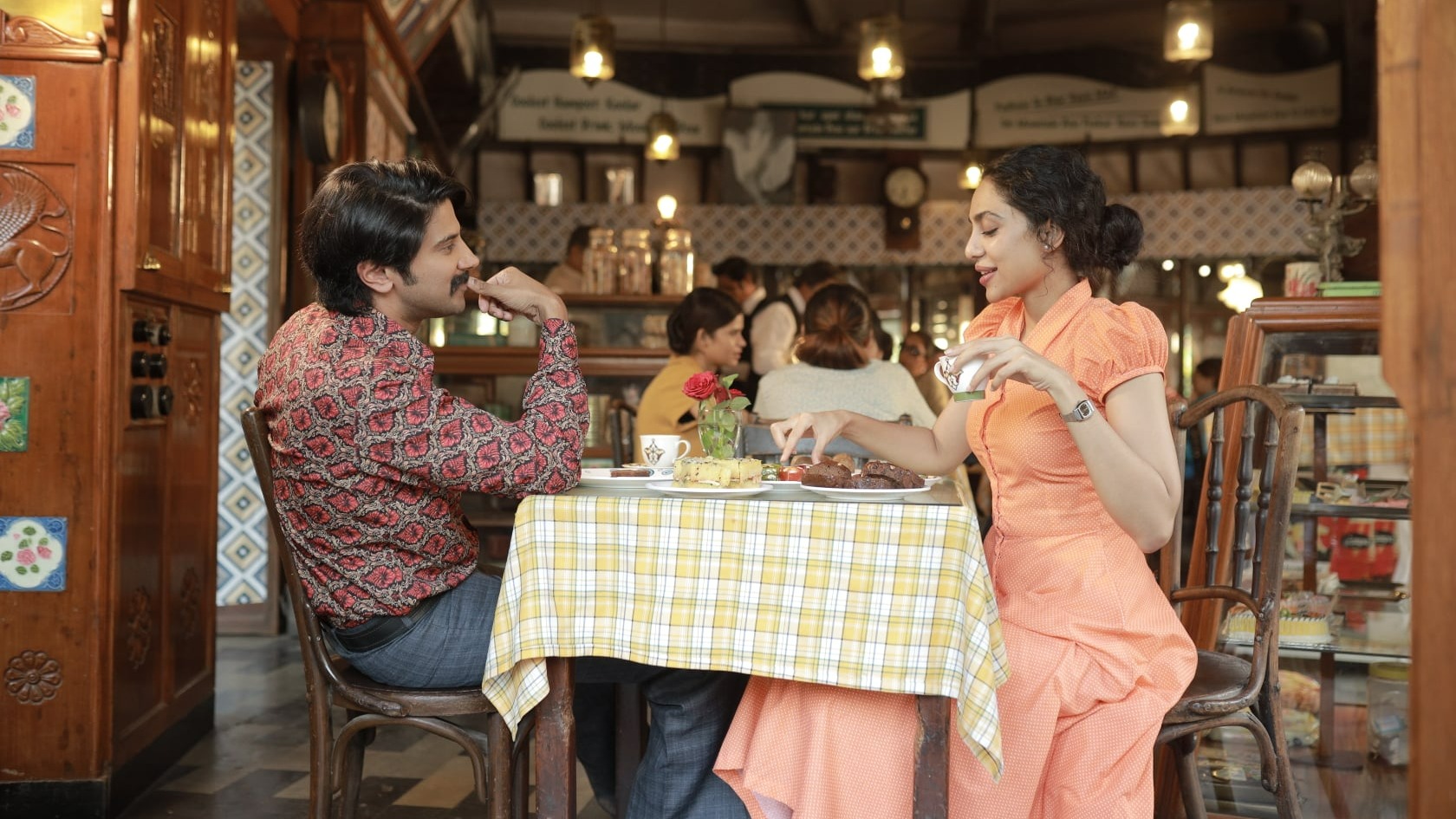Exclusive! Sobhita Dhulipala on Kurup: Fortunate to attract films where there is courage to do something new
The Made in Heaven actress talks about playing Sharada Kurup in the Dulquer Salmaan-starrer, acting in movies revolving around real-life murderers and how success in OTTs have catapulted actors into a new league

Last Updated: 05.52 PM, Nov 08, 2021
For the longest time, a Bollywood actress being part of a Malayalam film meant that she’s cast for a part where the leading man continues with what he does best and the female protagonist adds the glamour element to it. Sobhita, however, would beg to differ from her experience in Dulquer Salmaan’s Kurup and Nivin Pauly’s Moothon. Both the movies had the male protagonists out of their comfort zones, pushing themselves harder than ever for a role. This phase, Sobhita tells us, is something she herself enjoys as an artiste – to take risks through her creative choices.
OTTplay caught up with the actress in Kochi, ahead of the release of Kurup, for an exclusive interview about her role in the Srinath Rajendran directorial, the unique experience of working in movies revolving around real-life murderers and how OTTs have become game-changers.
Kurup is effectively your second Malayalam film after Moothon.
It’s interesting because Moothon is a Hindi-Malayalam bilingual and I played a Hindi-speaking part. So, I don’t know if that technically makes Kurup my first Malayalam movie.

That’s fair. But tell us about what attracted you to the role of Sharada Kurup in Srinath Rajendran’s directorial.
Srinath had a discussion and the latter had come to Mumbai with his team to meet me. At that point, I thought Dulquer was only producing the film. I thought Kurup had an amazing story and would love to do it. When I got to know Dulquer was acting in it, that was the icing on the cake.
It’s a period film that’s also inspired from real-life characters. Your character Sharada, for instance, is based on Sukumara Kurup’s wife Sarasamma. Did you learn about the person why trying to portray your role?
The script pretty much traces the outline of the flow of events, but I did have to dig in deeper. Sarasamma was a nurse and my character is sort of based on her story. We followed that path.
The movie clocks from the late 60s to the 90s. So, you see bits of me in the 60s and primarily in the late 70s and 80s. Doing anything period is such a delight. There’s no way one can experience the bygone times. For instance, the way people communicated; they didn’t have phones or easy access to people and so there was a certain thought before anything was spoken and I find it sweet.

You have worked with some fabulous directors and Srinath’s technically just two-films old. But the amount of research that he and his team have undertaken for Kurup is massive. Did that make a strong impression on you?
I didn’t know it was a real story, as in I thought it was more like how you take a case study and fictionalise it. But to realise that the reality of this man itself is so dramatic, that was amusing. I know this means a lot to Srinath and we could see that during the shoot. Also, I remember the first meeting with Srinath and the writers. There was so much zest and passion. I was really blown away by the story, the world, the man, his mind and his people. His (Kurup’s) partner in life was a witness to a lot – as a silent spectator. She is sort of the first audience to his thoughts.
You have worked in another film – Raman Raghav 2.0 – that again centered on a character without a moral compass. As an artiste, is the experience different while working in movies where directors are invested in showing the film from the perspective of a such a person?
It is definitely a unique experience. Raman Raghav was my first film. I was a kid at that time and it was probably the first time I actually faced a video camera. But to be surrounded by a team who was passionate about what they are doing, it leaves an influence. It also allowed me to see characters as not just good or bad. Sometimes I think the only difference between a hero and a villain is a bad childhood. So, it almost becomes like a study of human character when you see a filmmaker who is trying to put the spotlight on a person’s impulses and thoughts, and not morality. It’s something that I have enjoyed. Black and white becomes boring because it’s not true. Reality is so interesting. It is full of conflict and grayness, and cinema is the most fertile ground to explore that.
Be it in Nivin in Moothon or Dulquer in Kurup, you collaborated with them when they were exploring characters that were out of their comfort zones. This often makes them vulnerable because it’s not something they have tried before or are confident about. How would you describe working with them during that phase?
When we are not playing something we aren’t familiar with, there is also a certain thrill, excitement, fear and nervousness. I really like that because I trust that energy to make mistakes. Something can go wrong, but what if it goes right? Then you end up being the first to do something or change the way something is seen. It’s almost like a gentle revolution. I think I am addicted to some kind of risk-taking as a person. I do that through my creative choices.
With Nivin, he was known as the sweet boy next door; and for me to first work with him in a movie like Moothon and then consume the rest of his filmography, I was amazed. A person has everything in them and it is just about what they choose to put out. It’s the same with Dulquer in Kurup. He is known more for his lover-boy roles and though I have seen in Kammattipadam and Parava, I really enjoyed watching him do something I haven’t seen him do before. I am also fortunate that I am attracting projects where there is courage to do something new.
You have also been active in the OTT space with Made in Heaven and Bard of Blood. How much liberty does the digital space allow to push the envelope in terms of content?
I feel like the change would have come anyway, but COVID lockdowns have catalysed it wherein OTT platforms have become more mainstream. Earlier, they used to be dumping grounds with regards to films, I feel. In the past, I believe established film actors didn’t see OTTs as a parallel, they saw it as a secondary avenue for actors or filmmakers who aren’t really mainstream. That changed with the pandemic.
They say how from plays we progressed to theatres and then as TV came in, it democratised the viewing experience for people. So, at every juncture, something comes and shakes the system a bit. But true artistes and storytellers stand to gain from such changes. In our lifetime, we have seen how the Internet and social media have come in. So, all of these are a chain of historical events and in 50-100 years from now, if mankind still exists, this would be a very important time.
For artistes especially, the OTTs have totally changed the game because content doesn’t have to be star-driven anymore…
Which is lovely right? Take Paatal Lok, for instance. Jaideep (Ahlawat) is not a conventional star but people are still raving about it. When Made in Heaven Season 1 happened, those of us who played the protagonists were seen as indie actors even though I had done an Anurag Kashyap film, a Geetu Mohandas movie and Kaalakaandi with Saif Ali Khan. So, when you are seen as an arthouse actor, it’s a different equation. But when a web series does well, you are immediately put in a league as other mainstream actors or artistes with visibility. That is where the game changes for me. So, right now, I don’t think there’s a distinction between OTTs for art houses and theatres for stars; we have seen some of the biggest stars have their releases on streaming platforms.
Is it easier for a passionate, cohesive team to come together for a project in OTT compared to the past in bigger projects where a star’s fanbase, market value or earlier filmography came into play right from the conception?
I feel when someone is passionate about something – whether it is a theatrical film, OTT project or a play – their passion will see it through. Secondly, I see the star-driven aspect as toxic and it applies equally for theatrical as well as OTT projects. Once someone buys a ticket for a big star’s film in a theatre and the movie isn’t good, the ticket is already paid for. In OTTs, where people have a wide range of options, if the film is not engaging, within 5-10 minutes, they exit it and watch something else. So, the film is not the hero, it’s the platform. The platform is the host with a variety of dishes – if you don’t like one, you can pick another. This demands that the content be quality driven. So, if somebody is a passionate actor, director, scriptwriter, it’s a fantastic time.
You also have another project in the South coming up – Mani Ratnam’s Ponniyin Selvan. What can you tell us about that?
We wrapped up its shoot. It was an amazing experience for me as an actor because it’s a period film. I play a part that is so different from everything I have done. I also have Major coming up. The interesting thing about South films is that they can release it in neighbouring languages in the South and also in Hindi. Major was shot in Hindi and Telugu and dubbed in other languages.
Most Frequently asked questions?
The actress is part of South productions - Kurup, Major and Ponniyin Selvan.
The actress plays Sharada Kurup, a character inspired by Sukumara Kurup's wife Sarasamma. In an interview with OTTplay, Sobhita says, "The script pretty much traces the outline of the flow of events, but I did have to dig in deeper. Sarasamma was a nurse and my character is sort of based on her story. We followed that path."

Thanks for your time & feedback, We intend to make the most it in our improvement journey
Subscribe to our newsletter for top content, delivered fast.

